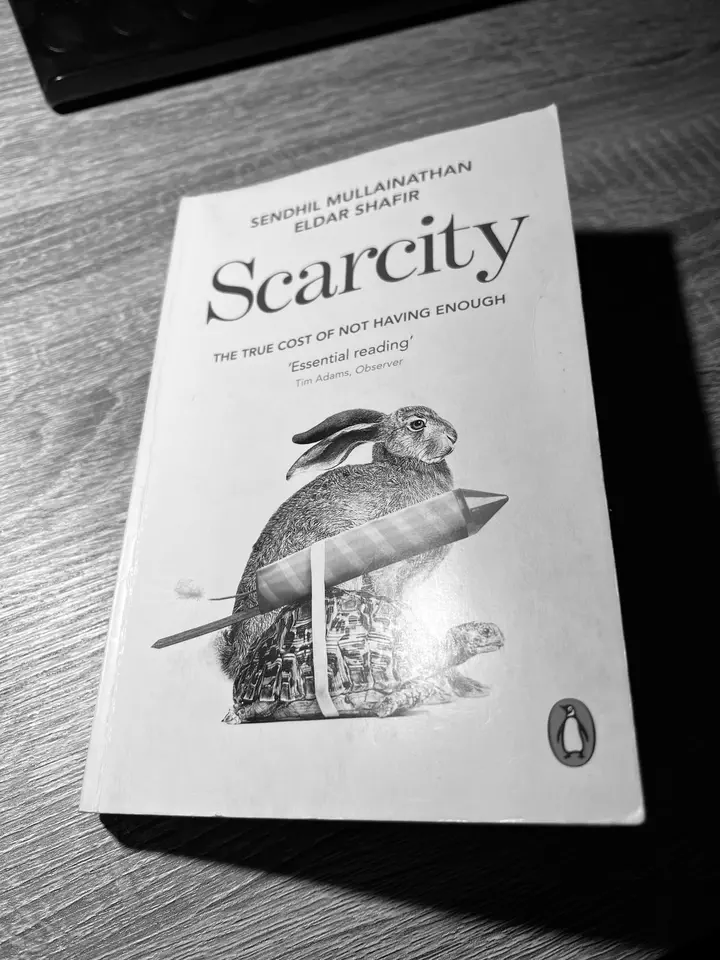Scarcity
Why Having Too Little Means So Much

In this book, the author explains how scarcity imposes demand on our cognitive capacity. That is, how the psychology of not enough demands attention and cognitive capacity, leaving us with less mind to do other things. In the case of dieting, there could be scarcity of calories. There is a scarcity of money, and even a scarcity of time. Although we all know that attention is limited, we fail to appreciate just how limited it is. When you don’t have enough of something, it captures your attention, it consumes your mental capacity, and you are left with less. In other words, you are very focused on what you don’t have.
It’s important to remember that financial poverty is the ultimate scarcity and is non-discretionary. When you’re very busy, you don’t have time, but it is usually a choice whether or not you choose to be busy. When you are poor and have no money, you cannot pay rent and you cannot put food on the table that is not discretionary. Instead of assuming that the poor don’t understand something, the theory of scarcity-induced cognitive deficits would tell us that they don’t have the money/time/energy to act on what they already know.
The book contains many interesting examples, but it’s an academic text. Despite explaining the issue well, the book did not offer much in terms of strategies or solutions. The book’s goal, in my opinion, is to change our perception of the struggles of our fellow humans.
Here are some great reviews and articles:
-
From the Economist, Days late, dollars short: Those with too little have a lot on their mind
-
From the New York Review of Books, It Captures Your Mind
-
From the Guardian, Scarcity: Why Having Too Little Means So Much: A study showing how poverty impairs judgment has far-reaching implications
-
From Pacific Standard, How Being Poor Makes You Poor: New research shows how poverty can often be a self-perpetuating trap
-
From the author Sendhil Mullainathan, in the New York Times, The Mental Strain of Making Do With Less
-
A discussion at the Aspen Institute, Scarcity: Why Having Too Little Means So Much - Sendhil Mullainathan